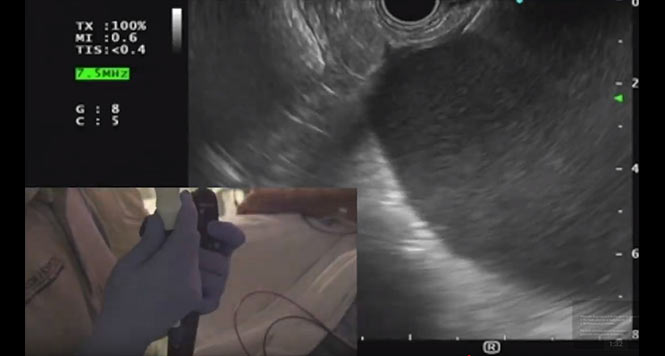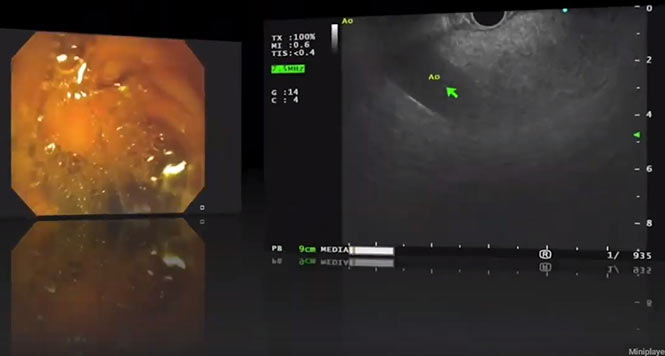Urgent Early Pancreatic Drainage Is Safe and Effective
Bret T. Petersen, MD, FASGE, reviewing Oblizacek N, et al. Gastrointest Endosc 2020 Jan 18.
Endoscopic decompression and drainage of immature pancreatic and peripancreatic fluid collections with incomplete encapsulation by a wall of surrounding tissue have generally been avoided out of concern for widespread leakage of contents and air throughout the abdomen, potentially culminating in peritonitis or acute pneumoperitoneum. This experience is largely anecdotal, however.
The authors performed a retrospective case-control study comparing 19 cases of early intervention over 10 years of practice (mostly for infection) versus intervention in mature cases of walled-off necrosis. Collections had been present for 15 to 27 days (median, 23 days), and all had CT evidence for at least a partial wall. Transduodenal drainage with (n=5) or without (n=6) transgastric drainage was common. The type of stents used evolved during the 10-year experience. Concurrent necrosectomies were performed at first intervention in 11 of the 19 patients. Early intervention required more prolonged therapy than controls (103 vs 69 days, P=.042). There was no mortality in either group, and adverse events were comparable.

COMMENTAcute and subacute pancreatic fluid collections, sometimes exacerbated by duct leaks, can present acutely with infection or obstruction prior to maturation to complete walled-off necrosis. This retrospective study suggests that minimally invasive drainage via an endoscopic route is safe and effective, often enabling ongoing management without resorting to percutaneous drainage or surgery. In the most extreme settings, this can be efficiently accomplished at the bedside in an intensive care unit via endoscopic ultrasonography.
Note to readers: At the time we reviewed this paper, its publisher noted that it was not in final form and that subsequent changes might be made.
CITATION(S)
Oblizajek N, Takahashi N, Agayeva S, et al. Outcomes of early endoscopic intervention for pancreatic necrotic collections: a matched case-control study. Gastrointest Endosc 2020 Jan 18. (Epub ahead of print) (https://doi.org/10.1016/j.gie.2020.01.017)


